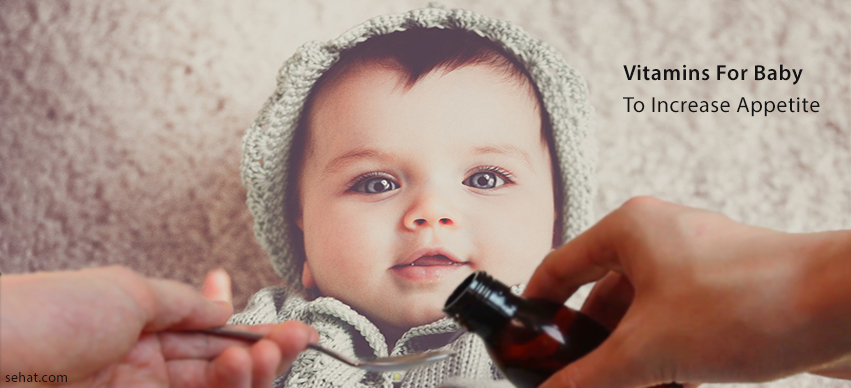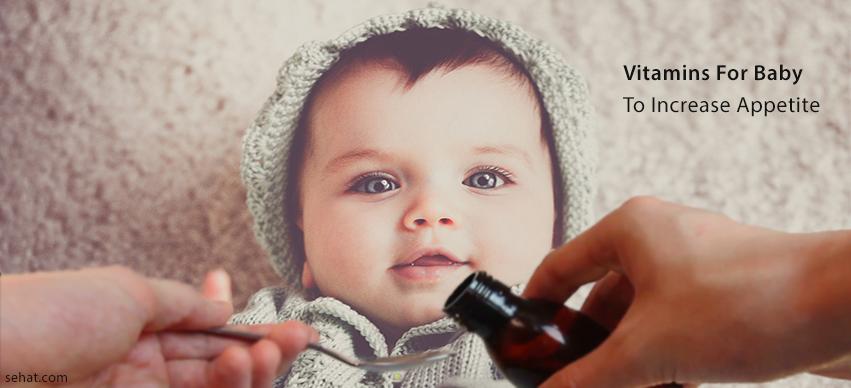How Communities Are Changing the Way We Think About Aging in..
8 Min Read


Feeding toddlers is an arduous task, particularly when the little ones are fussy and picky eaters. Some of them also have extremely unpredictable eating behaviours. You might not know, but in the age group of 1-4 years, kids develop food habits and preferences, which play an active role in influencing their overall appetite. Majority of the children don’t want to eat proper, healthy and nutritious food and hence their overall health suffers badly. Along with this, there is another factor that affects appetite in kids and that is a deficiency of vitamins and minerals. Since toddlers are fussy with their food intake, their bodies do not get the proper nutrients in the form of vitamins, minerals, and other vital components. In such situations, some other alternatives have to be sought.
Many parents often choose various kinds of supplements of minerals and vitamins for the baby to increase appetite. It is expected that on taking the supplements for some time, the appetite of the toddler will get better and he/she will consume regular food with interest. As per the “Archives of Pediatric and Adolescent Medicineâ€, it has been seen that children who have poor appetites are high on the chance for receiving a vitamin supplementation. Many times, parents by themselves give such supplementation to their toddlers without consultation of a pediatrician. However, parents whose children are not very fussy about food or have a healthy appetite do not need supplementation. The best thing is to give such a diet to the toddler so that his minerals and vitamins requirements are fulfilled completely and the appetite of the toddler is also stimulated without any external help from supplements.
Vitamin D is one of the most important vitamins required for the proper functioning of the human body. Vitamin D helps in the absorption of various kinds of vitamins and minerals in the body. Some of these include the likes of zinc, magnesium, calcium, phosphorus, iron and vitamin A. Many cases have been reported in which the body does not absorb abundant iron, zinc, and magnesium and lead to grave deficiencies of the same. When such deficiencies take place in the body, it might lead to loss of appetite and feelings of tiredness and fatigue. When there is a lack of vitamin D in the body, these vital minerals cannot be absorbed and might lead to various kinds of issues. In toddlers who are lactose intolerant, vitamin D deficiency is common.
In case of deficiency of vitamin D in toddlers, one of the best ways of dealing with the same is by including fortified milk as a dietary source. However, if you find that your child is lactose intolerant, you can try other ways of increasing Vitamin D levels in the body. Give your toddler orange juice, eggs or fish. Try to obtain direct sunlight as it is a great source of vitamin D. Along with these, vitamin D supplements can also be taken. Increasing appetite in toddlers is one of the functions of vitamin D. With that the vitamin also plays an active role in building strong bones and regulating kidney functioning. As per information from the National Institutes of Health Office of Dietary Supplements, it is said that a minimum of 600 international units per day of vitamin D works best for toddlers.
You will get various kinds of syrups to increase appetite in babies. If you read through the main components of the syrups, you will find that vitamin B-12 is one of the most important ones among them. Also known as cobalamin, vitamin B-12 helps the body in the conversion of food into energy. Not only this, but the vitamin is also crucial for carrying out metabolism of proteins and fats in the body along with maintaining proper health of various organs in the body including liver, eyes, skin, hair etc. Deficiencies of vitamin B-12 are quite commonly seen in children who were breastfed. The deficiency of this particular vitamin becomes quite apparent during the toddler and late infancy stage of a child. Some of the main symptoms with which the deficiency can be traced include refusal of food, developmental delays, impairment of the central nervous system, difficulties in feeding, regurgitation etc.
As per reports from “Journal of Inherited Metabolic Diseaseâ€, it has been found that when a child suffering from vitamin B-12 deficiency is supplemented with vitamin B-12 (in any way), an increase in appetite is noticed. There are clear cases when the food intake of a child increased and improved drastically after vitamin B-12 supplementation was started. However, one has to know about the right dosage of the supplement so that it is neither underdone nor overdone. The daily allowance of vitamin B-12, which is recommended by pediatricians is 0.9 micrograms for kids aged between 1-3 years. Kids who are in the age group of 4-8 years will need 1.2 micrograms of vitamin B-12 supplement. In fact, the mentioned figures have been supported by the University of Maryland Medical Centre. Apart from supplements, some other excellent sources of vitamin B-12 include the likes of dairy products, eggs, fish, beef and pork.
You might not be aware of the fact that one of the main causes of lack of appetite in toddlers is due to zinc deficiency in the body. If this mineral is deficient in toddlers, it might lead to many other kinds of problems including the likes of lack of smell or taste, stunted growth, inadequate healing of wounds, skin problems and so on. In case the problem is not taken care of in the toddler stage and progresses to adolescence, it might lead to inhibition of sexual maturation. Some of the most important functions of zinc in the body include digesting carbohydrates and proteins, balancing pH levels in the body, contributing to the structure of cellular membranes in the body etc.
The recommended dosage of supplementation for kids between 1-3 years is 3 milligrams; while for children in the age group of 4-8 years should have 5 milligrams of the mineral.